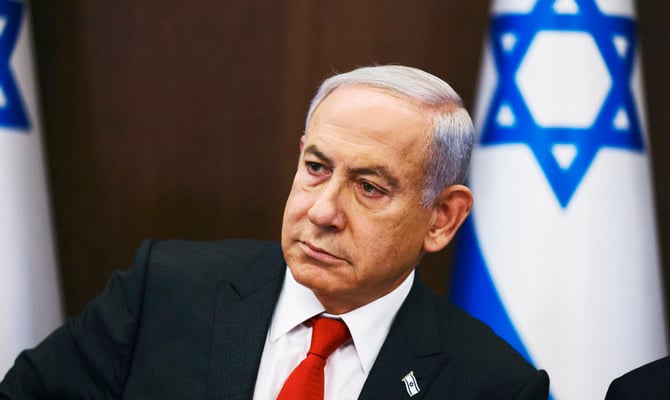
For a country that was under the spell of a single leader for more than a dozen years, Israel’s transition to a new government and leadership was bound to bring change in both substance and style. The visit by Yair Lapid, the alternate prime minister and foreign minister, to Brussels for talks with EU leaders this month was another step away from the Benjamin Netanyahu years of calculated (or miscalculated) friction and discord with one of the country’s main trading partners, with which it also has close cultural and scientific ties.
Lapid’s visit was the first time since 2008 that an Israeli foreign minister had been invited to participate in and address the monthly meeting of the EU’s Foreign Affairs Council, which is an indication of Brussels’ discontent with Israel’s policies toward the Palestinians during the Netanyahu years.
Like other governing bodies across the world, the EU’s approach toward Israel’s new coalition has been tentative considering its unusual composition. But there is also a sense, maybe even false hope, that notwithstanding the impasse in the peace process and the inability of this government to radically depart from the very policies that make peace and reconciliation impossible, Israeli policy under Prime Minister Naftali Bennett and Lapid will become more nuanced and the different ideological wings of the coalition will offset one another. Also significant for Brussels is that, with Netanyahu’s departure, the vitriolic anti-EU language — which was more about appealing to the former prime minister’s political base than statesmanship — is also, for now at least, a thing of the past.
EU High Representative for Foreign Affairs Josep Borrell made the first move by both congratulating Lapid after he took office and inviting him to Brussels to discuss “strengthening the bilateral partnership and promoting security and peace in the region.” Reading between the lines, it is clear that Europe is making improved relations with Israel conditional on progress toward peace with the Palestinians. Politicians in Brussels are not naive; they recognize that a peace initiative is not currently in the pipeline and the EU is far from ready to put its political weight behind it, just as the US is not yet prepared to return in a leading role as a peace broker.
Nevertheless, in the absence of immediate conditions for bringing the never-ending conflict between the Israelis and the Palestinians to a close, EU chiefs would probably be satisfied, at least in the short term, to see a limit on settlement activity in the West Bank and improved living standards and respect for the human rights of Palestinians in the occupied and blockaded territories.
Lapid might be new to the world stage, but a political novice he is not. He understands the limits of his remit in such a diverse government, which has been surviving by a thread from the beginning. Visiting the continent next door offered an opportunity for him to re-engage with Europe after the trail of destruction left by Netanyahu and convince his interlocutors that there is at least a change of tone, blended with a new pragmatism. Lapid, if not the entire Israeli government, is attempting to reframe the country’s relationship with the EU as a friendly one, without escalating every disagreement by reminding Europe of its history of mistreating Jews or bluntly accusing them of anti-Semitism, Netanyahu-style.
It is clear that Europe is making improved relations with Israel conditional on progress toward peace with the Palestinians.
Yossi Mekelberg
The new Israeli foreign minister is taking a more sophisticated — some might say canny — approach. He tells the Europeans he supports a two-state solution, but in the same breath pronounces that it is currently unfeasible, parking it indefinitely. Moreover, his comments that Israel must ensure “no steps are taken that will prevent the possibility of peace in the future, and we need to improve the lives of Palestinians.
Whatever is humanitarian, I will be for it. Everything that builds the Palestinian economy, I am for it,” are probably music to the ears of his European counterparts and may have bought Israel some time.
But Lapid is no longer leader of the opposition; he now heads the largest faction within the coalition government and is two years away from becoming the next prime minister. Abstract promises cannot and should not suffice — they must translate into an immediate change of conditions on the ground. And, so far, the new government has not proved willing to stop the legalization of settlements that even Israelis consider unlawful, to prevent settlers from violently abusing Palestinians with the backing of soldiers, to end house demolitions, or to refrain from discriminatory legislation. Ceasing such policies would prevent any future peace agreement based on a two-state solution and reconciliation between the two peoples from being compromised — and this is where the EU should hold Israel to account.
Lapid was not only seeking to improve Israel’s image in Europe and give its leaders a reason for optimism, he was also on a mission to revitalize economic relations, in particular to join the EU’s Creative Europe program for supporting the cultural and creative sectors. The sticking point is that this program bars the use of its funds in the West Bank, East Jerusalem and the Golan Heights, for the obvious reason that these lands are occupied. Israel is inclined to accept this condition, although with the reservation that participation does not amount to accepting a change in policy toward the Occupied Territories and settlements. Such a formula was rejected by the previous Israeli government and, though there is a concession here that acknowledges a differentiation between Israel proper and the Occupied Territories, it also does not discourage Tel Aviv from further entrenching its occupation.
If the EU would like to see a change in the current intolerable situation, it needs to take the lead, utilize its economic and diplomatic power, and become bolder in its moves to break the stalemate in Israeli-Palestinian relations. Such policies could include setting a date for Israel recognizing Palestine as a state, with East Jerusalem as its capital, with or without a peace agreement; helping in the reconstruction of Gaza and reviving the West Bank’s economy; and making an unequivocal distinction between Israel within the Green Line and the West Bank, East Jerusalem and Gaza.
Brussels should also incentivize both sides to alter their respective behaviors to ensure that human, political and civil rights are upheld for everyone equally between the Jordan River and the Mediterranean Sea. The EU has the means to change the direction of a conflict that desperately needs someone to make such a difference; a difference that will also benefit European interests. Frank and honest discussions with the Israeli foreign minister were a good place to start.
Yossi Mekelberg is professor of international relations and an associate fellow of the MENA Program at Chatham House. He is a regular contributor to the international written and electronic media. Twitter: @YMekelberg
Disclaimer: Views expressed by writers in this section are their own and do not necessarily reflect Arab News" point-of-view












